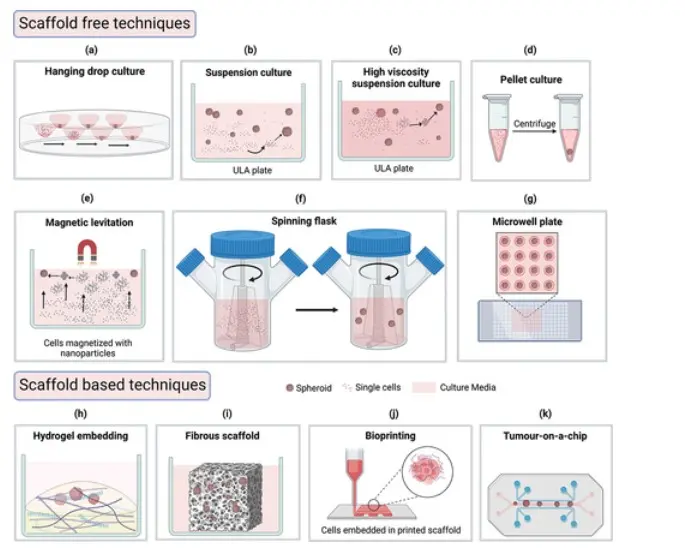Introduction
The world of oncology has witnessed massive advancements in recent years, driven by a deeper understanding of the molecular mechanisms underlying cancer. Targeted cancer therapies have emerged as a powerful approach, focusing on specific molecular targets associated with cancer growth and survival. These therapies aim to improve treatment outcomes while minimizing side effects compared to traditional chemotherapy. Central to developing these therapies are in vitro assays, which provide the necessary tools to explore the complexities of cancer at a cellular level. This article delves into the role of in vitro assays in identifying targeted cancer therapies, elucidating the processes through which these assays contribute to the field of oncology research.
Understanding Cancer Cell Biology with In Vitro Assays
In vitro assays serve as essential tools in probing the complex biology of cancer cells. These assays allow the examination of cellular responses in isolation, facilitating a clearer understanding of the cellular pathways and mechanisms that drive cancer progression. By cultivating cancer cells under controlled laboratory conditions, researchers can observe the effects of various stimuli and treatments, gaining invaluable insights into these cells’ behavior.
Using in vitro assays, scientists can study specific biological pathways involved in cancer progression, such as signal transduction and cell cycle regulation. Cancer cells often hijack these pathways to promote their uncontrolled growth and division. Researchers employ a variety of assays to monitor changes in cellular behavior, gene expression, and protein interactions in response to different treatments or environmental factors. This helps identify which pathways are critical for cancer cell survival and growth, leading to the identification of potential therapeutic targets.
One notable advantage of in vitro assays is their ability to model the tumor microenvironment, offering insights into how cancer cells interact with their surroundings. By mimicking the conditions found in solid tumors, researchers can observe how cancer cells evade immune responses, resist apoptosis (programmed cell death), and promote angiogenesis (forming new blood vessels). This knowledge is fundamental to unraveling the complexities of cancer biology and developing strategies to inhibit these processes effectively.
Identifying Potential Therapeutic Targets
Targeted cancer therapies revolutionize treatment by focusing on specific molecules involved in tumor growth and progression. In vitro, assays play a pivotal role in identifying these therapeutic targets by facilitating the testing of different compounds and molecules to determine their effects on cancer cells. As a result, researchers can pinpoint critical elements within cancer cells that, when inhibited or modified, can lead to reduced tumor growth or cell death.
One commonly used in vitro assay in target identification is high-throughput screening. This technique allows scientists to quickly assess the efficacy of many compounds against cancer cell lines, identifying potential drugs that interfere with specific targets. Utilizing automation and miniaturization, high-throughput screening enables the rapid evaluation of thousands of compounds, providing valuable information on their biological activity, toxicity, and mode of action.
Moreover, genetic assays play a crucial role in identifying potential targets by examining the role of specific genes in cancer progression. Through techniques like RNA interference and CRISPR-Cas9, researchers can selectively silence or edit genes associated with cancer. By observing the effects of these genetic modifications on cellular behavior and survival, scientists can identify genes and proteins crucial for tumor maintenance and serve as viable targets for therapy.
Once potential therapeutic targets are identified, in vitro assays are further employed to validate and characterize these targets. This involves assessing the effects of target modulation on cancer cell viability, proliferation, and other key parameters. Researchers utilize various assays to measure parameters such as cell cycle progression, apoptosis induction, and DNA damage response, providing critical data on the potential effectiveness of targeting specific molecules.
Evaluating the Efficacy of Targeted Therapies
Having identified potential therapeutic targets, in vitro assays become invaluable tools for evaluating the efficacy of targeted therapies. Before advancing to clinical trials, it is essential to thoroughly assess the effects of treatment on cancer cell lines and validate the therapeutic strategy. In vitro assays provide a platform to test and optimize different treatment regimens, enabling researchers to fine-tune their approaches.
One of the primary benefits of in vitro assays is their ability to simulate tumor heterogeneity, where cancer cells within a tumor exhibit diverse genetic and phenotypic characteristics. This diversity contributes to treatment resistance, making it crucial to develop therapies targeting multiple cancer cell subpopulations. In vitro assays enable researchers to test combinations of therapeutic agents, exploring synergistic effects that enhance treatment efficacy and overcome resistance mechanisms.
Additionally, in vitro assays offer valuable insights into drug resistance mechanisms and potential strategies to overcome them. Cancer cells often develop resistance to targeted therapies through various mechanisms, such as the activation of alternative signaling pathways or the emergence of resistant cell subclones. By conducting in vitro experiments, researchers can uncover these mechanisms and design strategies to counteract resistance, improving treatment durability and outcomes.
Furthermore, in vitro assays facilitate the assessment of potential side effects and toxicity profiles of targeted therapies. While these therapies aim to minimize off-target effects, it is crucial to ensure their safety before human trials. In vitro models allow researchers to evaluate the impact of treatment on normal cells and tissues, providing essential data to predict potential adverse effects.
Conclusion
In vitro assays have significantly contributed to developing targeted cancer therapies by enabling a comprehensive understanding of cancer cell biology, identifying potential therapeutic targets, and evaluating treatment efficacy. These assays provide the foundation for precision medicine approaches that aim to tailor treatments to individual patient’s unique genetic and molecular profiles. As oncology research continues to evolve, the role of in vitro assays remains indispensable in driving innovation and advancing the development of more effective and targeted therapies. By leveraging these powerful tools, scientists can unlock a deeper understanding of cancer, paving the way for breakthroughs that will ultimately improve patient outcomes and quality of life.
Also Read-How PCB Design and Assembly Drive Technological Innovation
